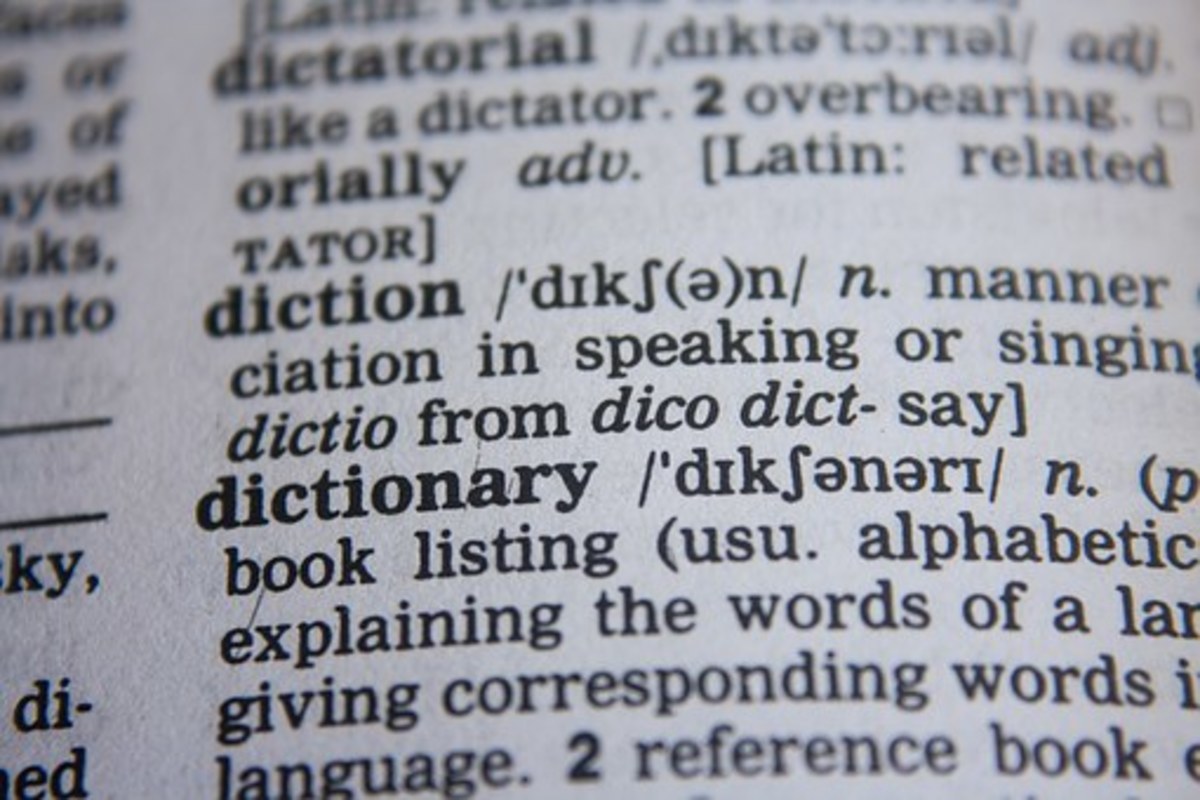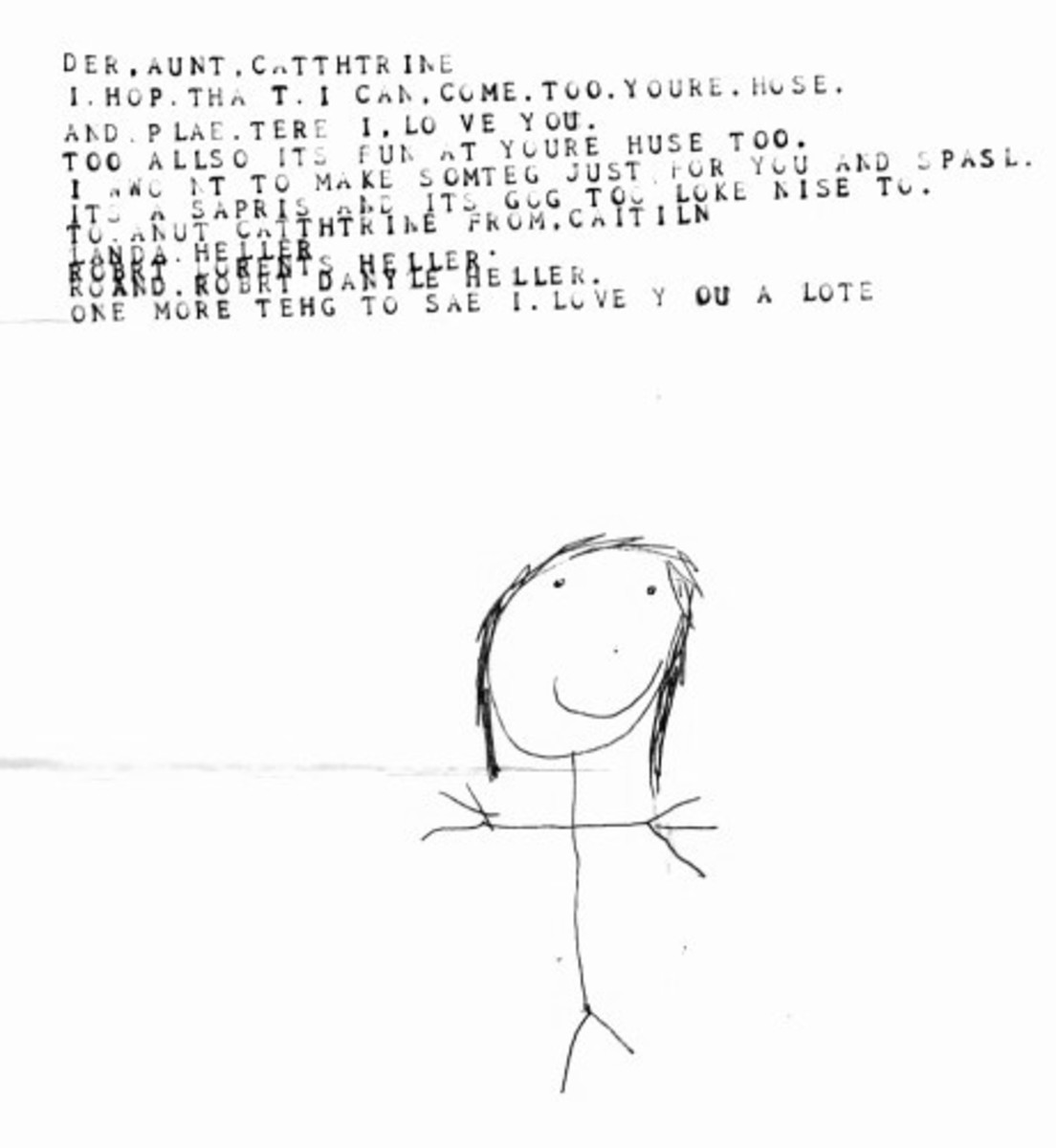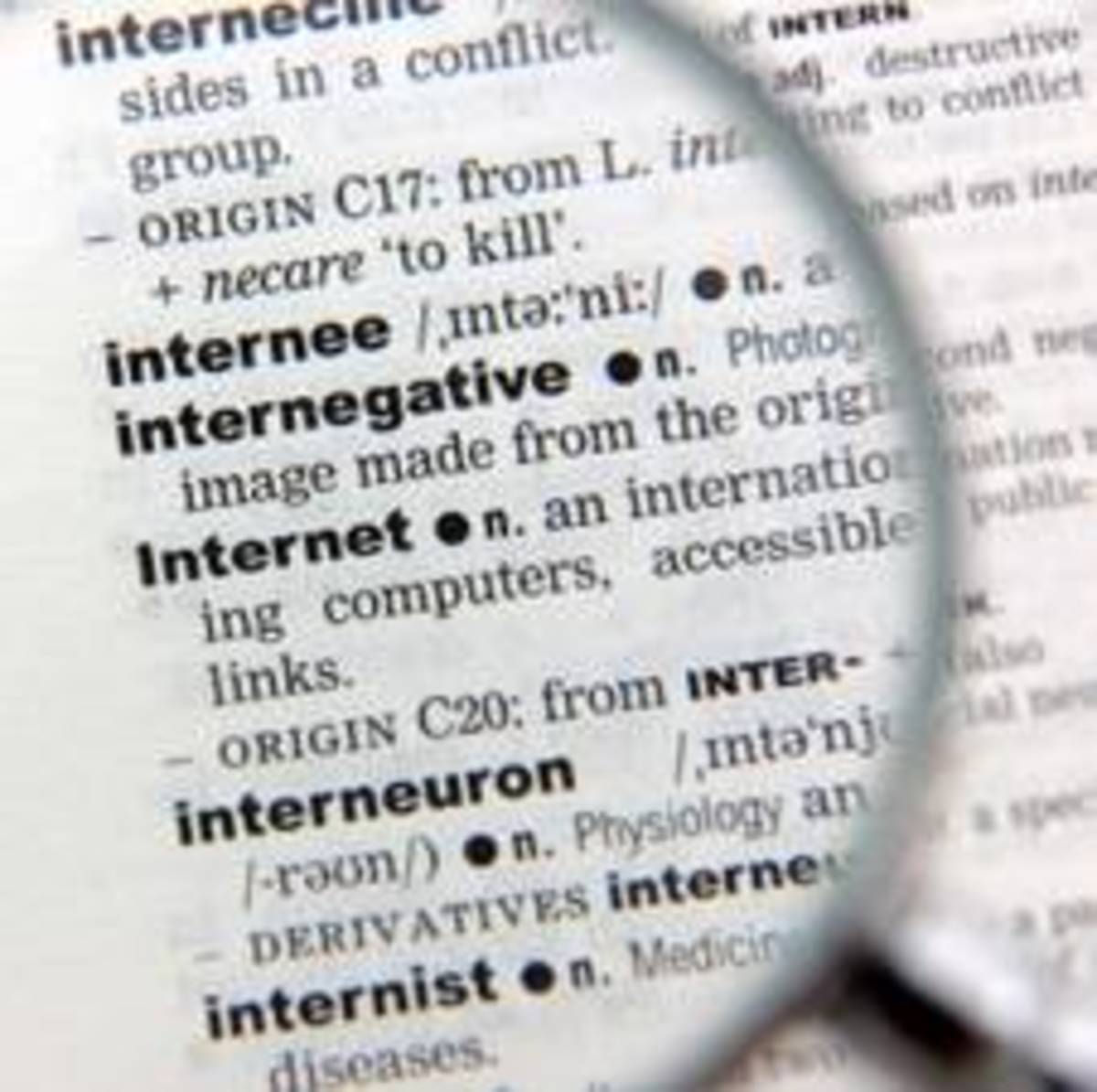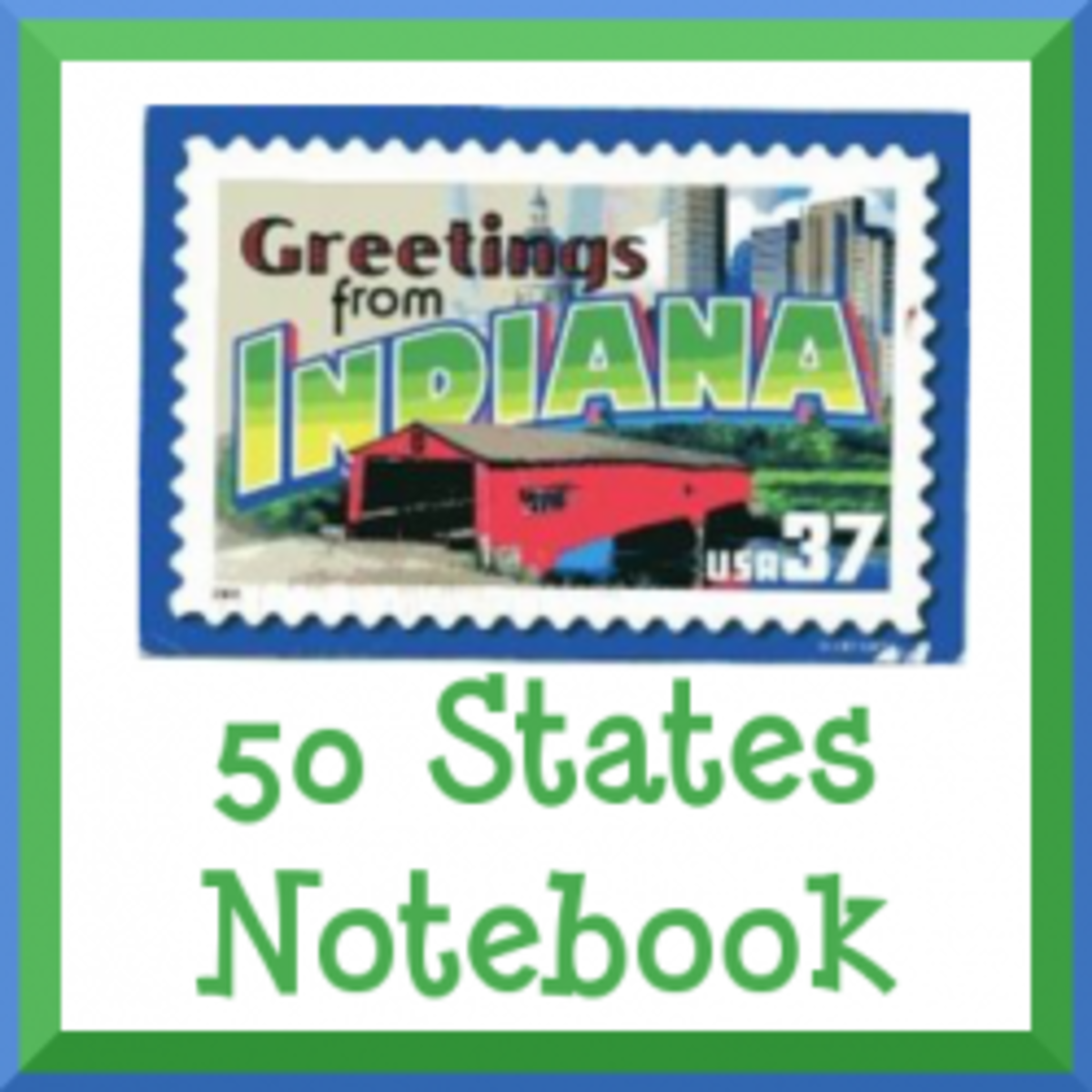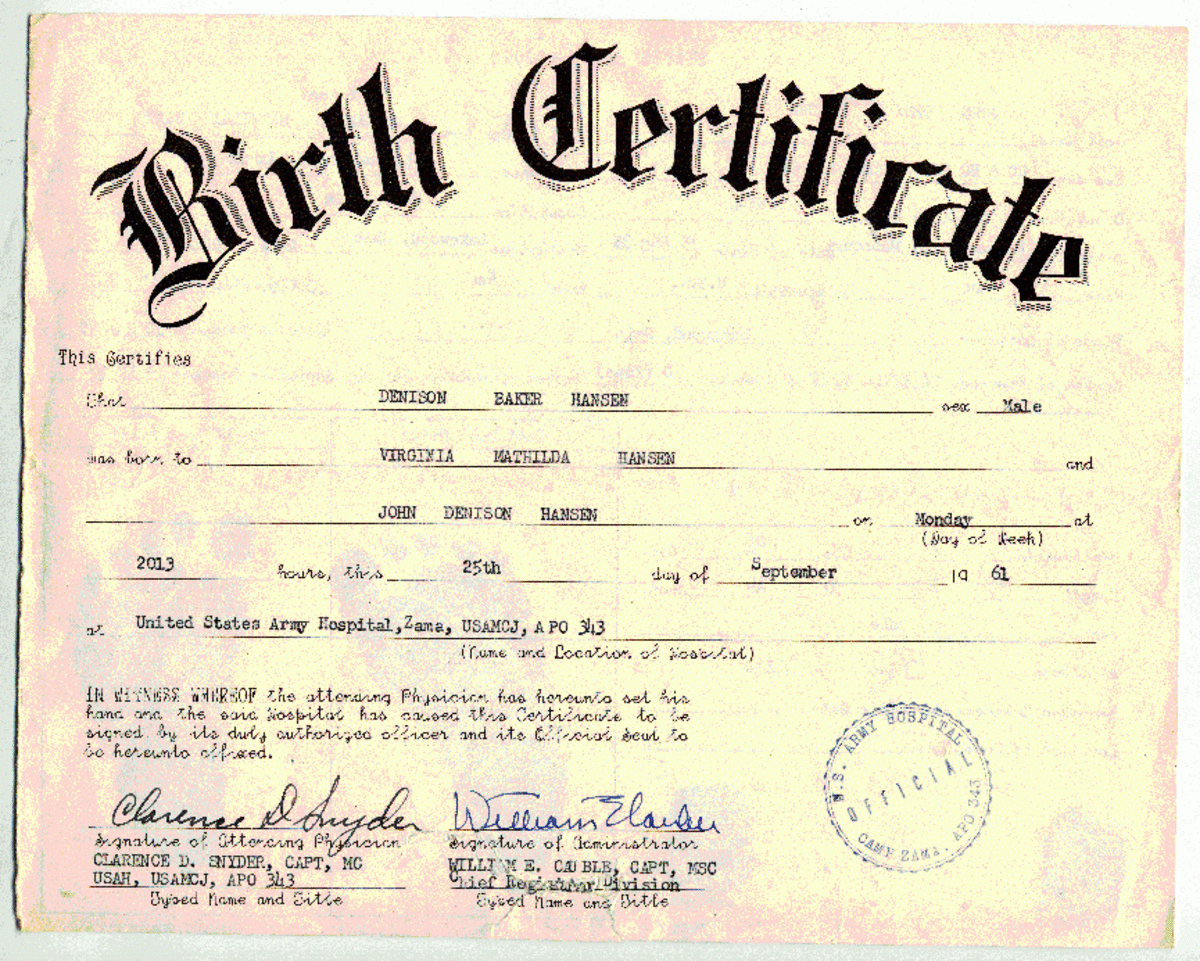How To Learn Vocabulary
BUILDING VOCABULARY
Every day, people search for the secrets to improving vocabulary.
They hunt for the tricks to enhancing vocabulary. They seek easy ways to build vocabulary, study vocabulary, maybe even how to imbibe vocabulary.
And every day, other people try to sell such "secrets." Buy this vocabulary lesson plan. Try these vocabulary building exercises. Take this quiz. Learn these lists.
Enough. Enough. Time to shoot and stuff the balderdash.
Vocabulary is just a bunch of words.
Remember that, and choose a safer, saner way to transmogrify yourself into a walking, talking, diphthong-yodeling human dictionary.
TEACH YOURSELF VOCABULARY
- The Offer: Here's how to really learn vocabulary. For free. Only self (and possibly library card) required.
- The Bonus: Here's how to learn new vocabulary and still talk sense at the end of it all.
Keep reading, and get started today.

READ, READ, READ
Read. This advice is obvious and given often. It's also advice that is frequently ignored in favor of the search for a quick fix, for the ultimate vocabulary booster shot.
But, seriously, read. It's how to learn vocabulary. Read anything and everything: street signs, the backs of cereal boxes, clothing labels, old recipes.
Read constantly, but learn to be picky about what you read if you want to stretch yourself.
Know that many magazines, newspapers, and websites aimed at adults are purposely written at a middle school level. One reason is that clear, simple writing is powerful. The other is that publishers know most readers flee when writing is stuffed with long, scary words.
If your goal is to learn new words, read books. Read fiction. Read classics. Read books about history and science. Read books edited by people who don't cower at complex phrasing or complex ideas.
Read good writing. It's the best way to learn new words in context. It's also the best way to learn the power and beauty of words.

WRITE DOWN WORDS YOU DON'T KNOW
Keep a list of words that are unfamiliar to you. Write them down on scratch paper or in an email to yourself. Keep the list with you, and add to the list throughout your day.
This will help you in two ways.
- If you come to the end of a day and your list empty, you'll know to change your routine. Watch a different mix of television shows. Talk to new kinds of people. Tweak your current pile of reading.
- Keeping a list allows you to create your own lesson plan, day by day. Your list will contain words that you've come across in real life that you don't know. Learn them. Don't bother with vocabulary words "you ought to know."

ASK QUESTIONS
"What do you mean, ask questions?" you ask. "Isn't this kind of embarrassment exactly what I am hoping to avoid by trying to improve my vocabulary?"
Too bad. (And good start.) Keep on making "What does it mean?" your mantra.
Now, about embarrassment: There are people in this world who assure you that "there are no dumb questions." These people are usually the first to let you know when you've asked one. So let's assume some dumb questions (and some mean people) exist.
But most questions —especially questions about the precise meaning of words — are not dumb at all.
Think of what could have happened over the past decade if more homeowners had asked their lenders for a really good definition of "adjustable rate mortgage" before signing on the dotted line.
They might have felt stupid asking for a definition of an unfamiliar term, but a few might have learned it was not just another synonym for "good deal."
Asking questions is a good, smart habit to start. Call it a life skill. Vocabulary enhancement will be a fringe benefit.
Remember that seemingly familiar words deserve your questions as much as unfamiliar words.
For instance, it wouldn't hurt to ask "What do you mean?" the next time you hear someone use words like "torture," "justice," "the common good" or even "faith" and "beauty."
Ask away, and join debates that have been raging for centuries.

TAKE A CLASS
Learn something new.
The subject matter is not important. Just don't study vocabulary.
The goal is to absorb subject-specific words, sayings and jargon from a new field. That field could be drawing, welding, biology, architecture or mountaineering.
You'll likely learn many new words. At the very least, you'll learn some new meanings to old words.
The benefit: The more specific and concrete your understanding of words, the better able you are to play with metaphors. You'll also start to avoid clumsily applied cliches.
Learn a little chemistry, for instance, and you'll start viewing the phrase "they just bonded" in a new light.

LEARN A NEW LANGUAGE
Start by picking a language that has influenced English at some point in history.
You'll begin to see patterns and similarities in the meaning of words.
For example, once you learn that oscuro is a common Spanish word for dark, you'll more easily sense the range of meanings to the word obscure in English.
- OBSCURE: to conceal, to overshadow; of uncertain origin, hard to understand, vague, not well known, dim, etc.

PLAY WORD GAMES
If you've never tried it, play Scrabble.
Borrow the board game (or find one at a thrift shop.) Learn the rules, and play with real people.
Try playing with family and friends. (You won't need to tell them, "I'm trying to increase my vocabulary." Just tell them you want to have fun.)
The point of the game is to take a given set of letters and make words out of them. The more words you know, the easier the game gets.
What's in it for you is that the more you play, the more words you learn.
Even if you find you it a struggle to play any word other than "it," take advantage of the rules of the game and challenge every unfamiliar word your opponent plays.
You'll likely lose.
But with every challenge, your nose will land back in a dictionary, learning the meaning of new words.
- ADZE: It's like an ax, but even better for triple word scoring.
More word games
- Online Word Games
Play online word games including SCRABBLE, Word Whomp, and other free games at Pogo.com. - FreeRice
Give free rice to hungry people by playing a simple game that increases your knowledge.

DON'T START WITH A THESAURUS
There's nothing wrong with using a thesaurus, but it's not a natural way to learn new words. A thesaurus won't tell you how commonly a word is used. It won't tell you how odd and pretentious you'd sound if you apply a particular word in a given context.
A thesaurus may tell you that aurora is a poetic word for dawn, but it won't caution you not to ask a stranger: "So, were you up by aurora this morning?"
The "usage notes" in a thesaurus won't always help you steer clear of unintended double entendres and vulgar meanings.
- If the list of synonyms for ass in a common thesaurus still starts with word donkey, how much help can you expect in less familiar territory?
The biggest danger of relying on a thesaurus (or studying simple flashcards, for that matter) is that it breeds overconfidence. You may think you have a word nailed, but, really, you don't.
For example, you wouldn't want to be "You" in the following scenario.
You: "That smell really makes me think of incest."
Your friend: "What??!"
You: "Wait, maybe I meant incense? Smells like incense?"
If your friend is kind, he will congratulate you on such a stupendous malapropism.
- MALAPROPISM: Look it up, just not in a thesaurus. The thesaurus will tell you that a malapropism can be a kind of Freudian slip. (Let's hope not. Let's hope incest was just a blunder.) See above for reading; search elsewhere for Richard Sheridan, Mrs. Malaprop and The Rivals.

DON'T HAND OVER YOUR MONEY FOR HELP
Increasing your vocabulary is something you can do yourself, at home, without spending a cent.
Sure, there are books you could buy and online courses you could take. There's even individual tutoring available. But it's not likely to be worth it.
- Unless landing your next job depends on memorizing the 60 most useless words beginning with the letter "X" in the next 12 hours, you don't need professional help.
Really. You can learn to improve your vocabulary on your own.

DON'T DWELL ON THE WORDS YOU DON'T KNOW
Don't start believing your future success, career and existence depend on the size of your vocabulary. It's simply not true.
Yes, it's a virtue to push yourself to learn more and to experience more. And if, at the end of the day, a few more words trip easily off the tip of your tongue, great.
But it ends there.
Most things in life that can be easily measured, it turns out, really don't measure that much.
Empathy, good sense, wisdom, nuance and discretion mark good communicators, not the number of fancy words they choose.
And by some very old accounts, you don't need to know a single word to be the smartest guy in the room.
- "Even a fool, when he holdeth his peace, is counted wise: and he that shutteth his lips is esteemed a man of understanding." That's Proverbs 17:28, KJV.
A FINAL WORD
The word "word" has appeared in this article about 50 times. Could have gone with the thesaurus and thrown in a few vocables and confabulations on occasion for variety. But such confounding usage wasn't meant to be.
So now, for fun, a reminder that words don't always matter, and that words in great number can be practically useless.
This is the clip from the musical My Fair Lady in which the living elocution experiment Miss Eliza Doolittle tells the world: "Words, words words, I'm so sick of words."

